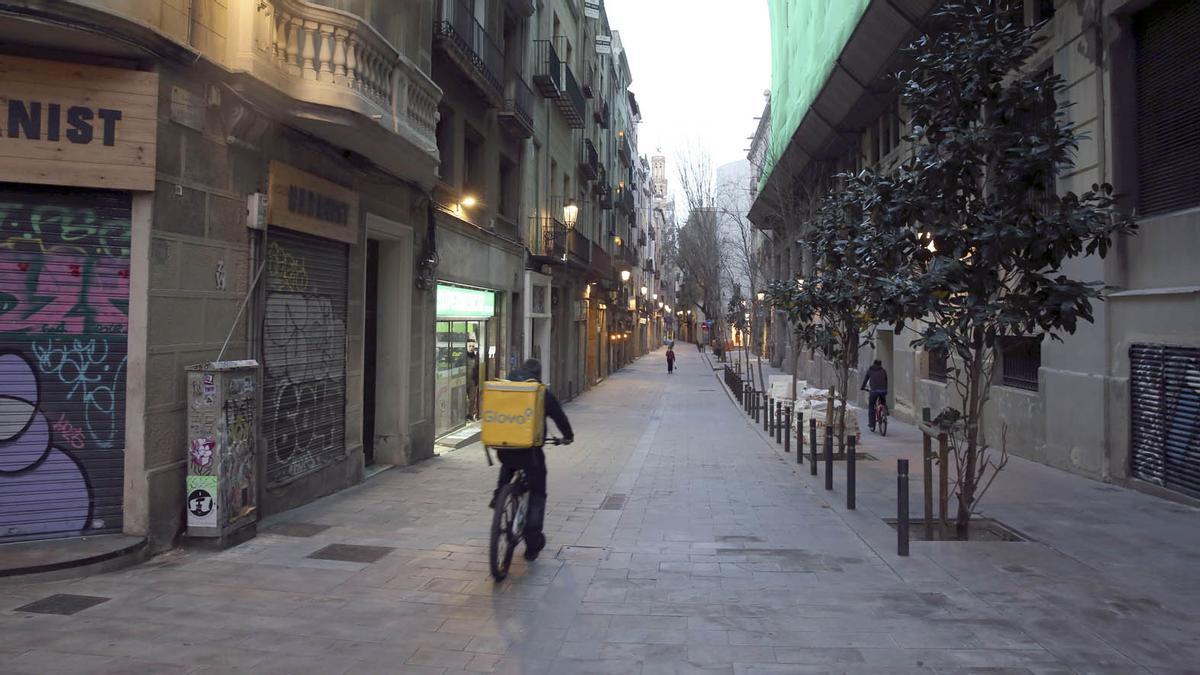
Just three years ago today, the March 14, 2020, Spain decreed a home confinement to the entire population. First for 15 days, but finally they became about two months. In the social imaginary, the covid-19 pandemic is behind us, but epidemiologists warn that this is not the case: in spain is still the notifiable disease which causes the most deaths (between 10 and 15 per day) and there is still a part of the very vulnerable population to the virus. Basically, the old people and the Chronically ill or with risk factor’s. To have a context, in a very bad flu year, as was 2018, there were 5.07 deaths per day. The current death figures from covid are currently double and even triple.
But, in addition, the health system continues to drag the underfinancing and the lack of professionals that the explosion of the virus brought to light The strikes that in recent months have spread throughout the different autonomous communities (including Catalonia) demonstrate the health malaise and the lack of resources.
Third, the scant research on the persistent covid the most visible sequel to the pandemic and whose patients continue to find no answers or solutions (in Catalonia 14,000 registered cases but many others undetected), prevents a final slam to the pandemic.
“If every day there were 10 deaths from AIDS it would be scandalous, but the figures have normalized and the problem is underestimated,” says Joan Caylà
No surveillance in nursing homes
“It is a mistake that, since February, the Ministry of Health no longer does reports Over the infections in residences. The mortality it was low, but it was still higher than end of 2020 and with the incidence the same thing happened”, values Joan Caylà, Member of the Spanish Society of Epidemiology (SEE). For this epidemiologist it is a “contrasent” lift restrictions (access to the centers is as before the pandemic and only the mask is still mandatory) and stop counting possible infections. This and that only the serious cases (those who arrive at hospitals) and vulnerable (over 60 years) offers a very inaccurate image what is the epidemiological situation of the country.
“Lifting restrictions and increasing cases and not counting would be a blunder. These reports are relevant to see where things are going. It is important to verify if the situation is going well or is getting worse”, says Caylà, also noting that the seniors are the most vulnerable population to this respiratory virus and that they are not being properly looked after.
As of today, the covid-19 is in Spain deadliest notifiable disease. Notifiable diseases are those that are considered of great importance for public health and that is why doctors are obliged to declare infections, as is the case with AIDS, tuberculosis, syphilis, gonorrhea or the flu, among others. “If every day in Spain we had 10 dead from AIDS I would be scandalous. But they have normalized these figures and underestimate the problem. Ten deaths a day in the fourth year of the pandemic, it is a very respectable number,” says Caylà, who believes that covid cases should make isolation, use the face mask indoors and improve the vaccination rates of the third and fourth doses.
“China is a big problem because it is not transparent. We do not know how many people have died and they have not collaborated in finding the origin of the pandemic,” says Salvador Macip
In addition, he regrets that the press no longer talks about the pandemic. “He goes on and will continue for a while because it still affects every country in the world.” The World Health Organization (WHO) keeps the virus as international emergency. “Covid-19 is being trivialized,” laments Caylà.
“Middle point”
The Director of Health Sciences Studies at the UOC and Professor of Molecular Medicine at the University of Leicester, Salvador Macip, is more in favor of “find a middle ground”. “The pandemic is not over yet. But it is true that we are living through a very different phase, because in Spain is the whole world very well vaccinated. Los risks are minor, but they’re still existing”, rate Macip.
“There are still few resources and there is no reaction capacity in the face of an acute crisis of the system,” says Macip
Macip is a member of the covid-19 scientific advisory committee in Catalonia. This body was reactivated in January, when infections began to increase in China as a result of the lifting of the ‘covid zero’ policy. However, to this day it is standing still again. “China is a big problem because it is not transparent at all. We do not know how many people have died and they have not been collaborators when it comes to looking for the origin of the pandemic.
In addition, this researcher recalls that six months the antibodies from the vaccines begin to drop “quite a lot”, Therefore, it emphasizes the importance of revaccination. “If people don’t get revaccinated, especially in residences there may be shoots, that’s why you have to keep watching and be aware that there is still a danger,” he says.
An “unprepared” system
Related news
What worries you most is the system “saturation” if they mix various respiratory viruses such as covid-19, the flu or the respiratory syncytial virus (RSV), as happened in November. “We have a health system that You are not prepared for crises like this. There still being few resources if infections increase. There is no ability to react in the face of an acute crisis of the system”, points out Macip, who calls for maintaining prevention in hospitals and nursing homes.
To the Catalan health system, despite the 1,000 million extra that the ‘conselleria’ has invested in these budgets, millions are still missing: if in 2020 there were 5,000, as indicated by the study ‘The disease of Catalan health: financing and governance’, now they are 4,000 million. In addition, with regard to covid-19, the threat of the appearance of new more aggressive variants and that they escape immunity is still real.
Source: www.elperiodico.com

